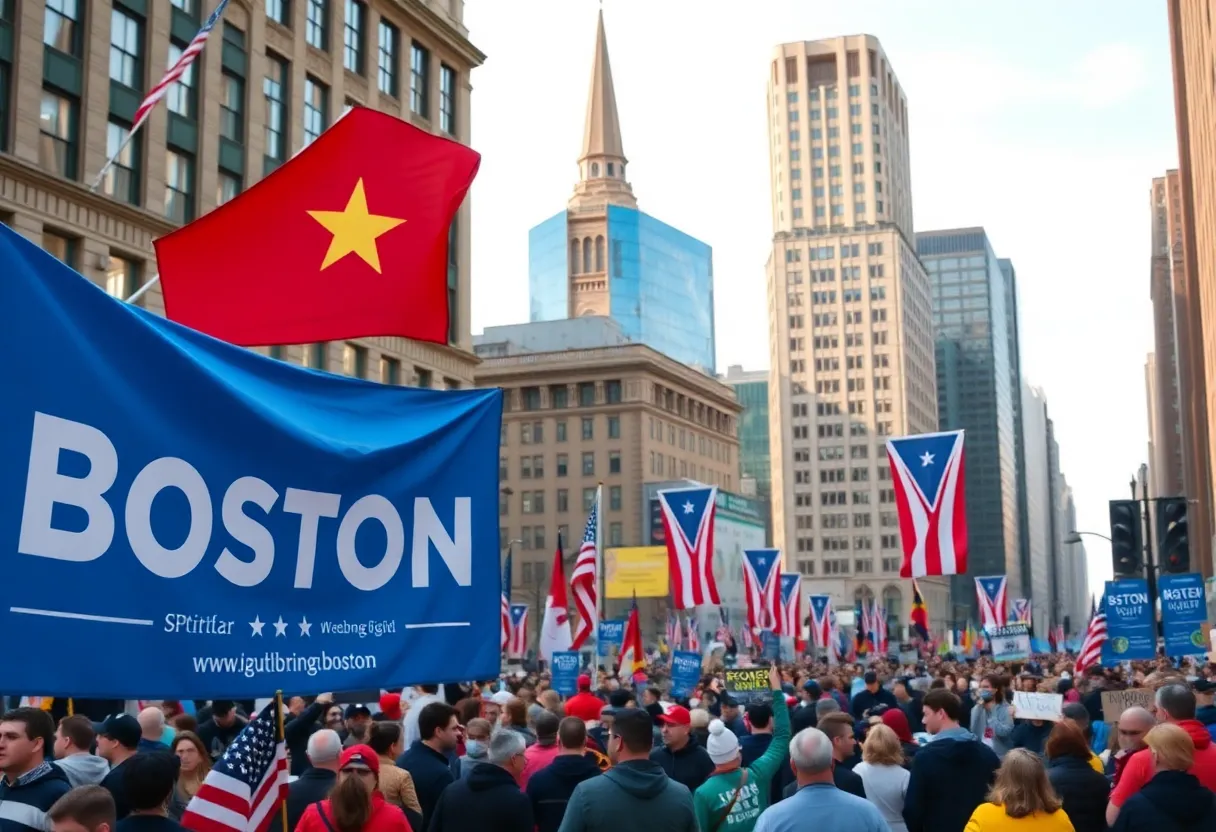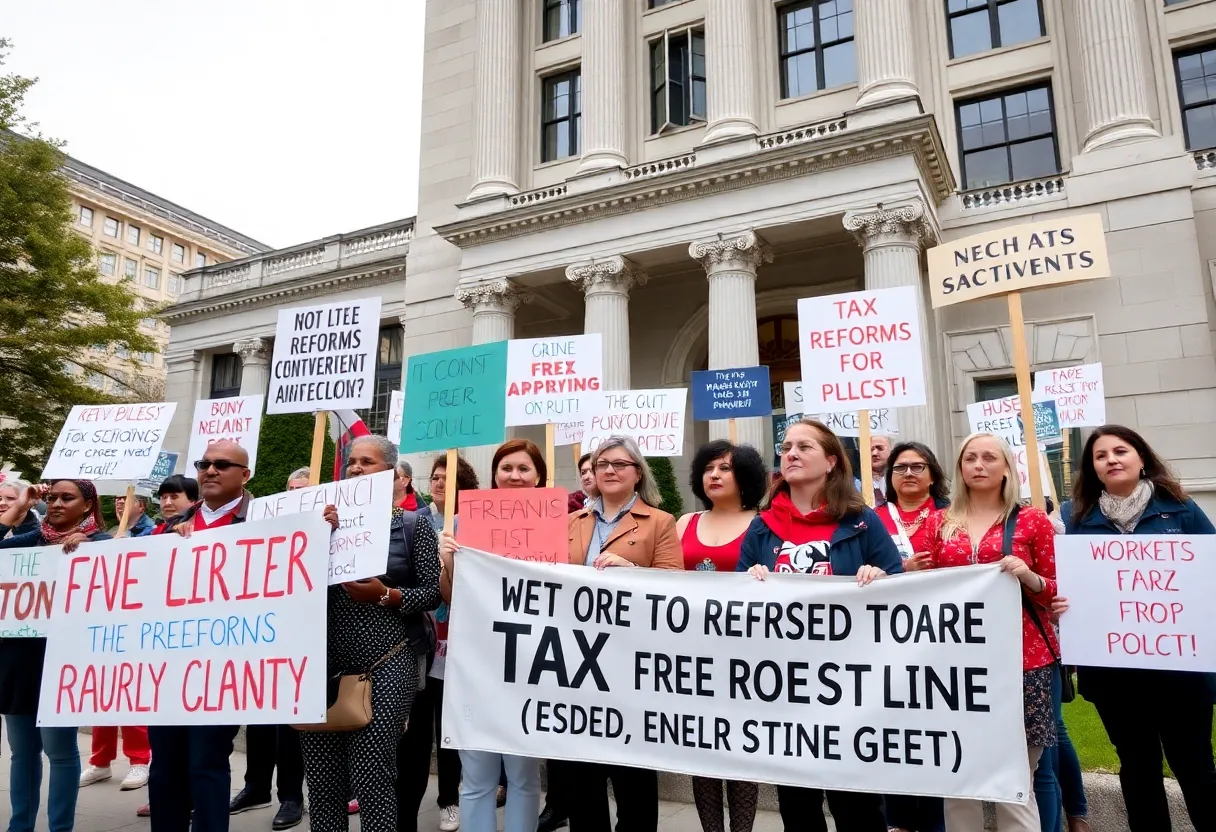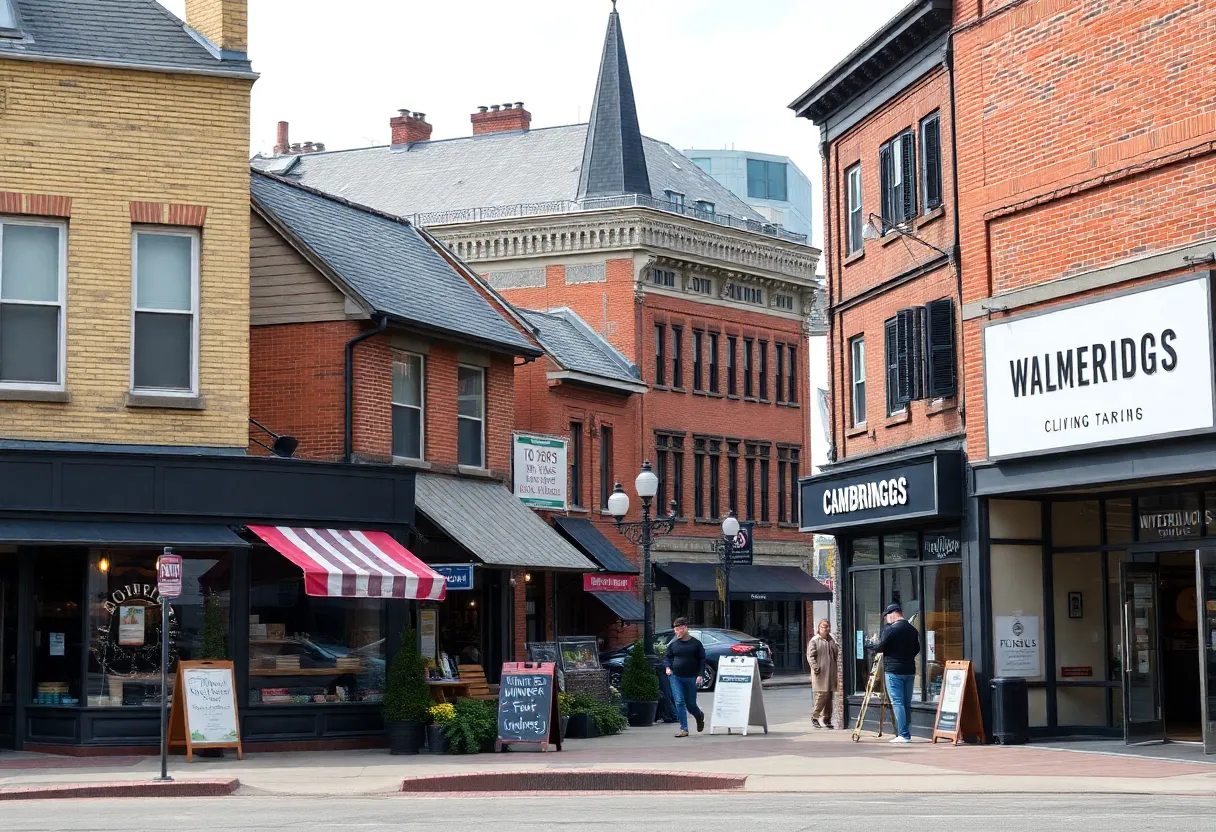News Summary
Boston is abuzz as Josh Kraft, son of Patriots owner Robert Kraft, enters the mayoral race, criticizing incumbent Michelle Wu’s spending and housing policies. With his extensive community work, Kraft aims to address rising rents and housing shortages while emphasizing fiscal responsibility. His commitment to Boston could reshape the local political landscape as voters weigh their options ahead of the election.
Boston’s Mayoral Race Heats Up with Josh Kraft’s Candidacy
Boston is buzzing with excitement as Josh Kraft, the son of New England Patriots owner Robert Kraft and an influential figure in local philanthropy, has officially thrown his hat into the ring for the mayor’s position. His announcement on February 4, 2025, is already stirring the pot as he critiques the incumbency of Michelle Wu, particularly about her recent spending decisions regarding a high-profile testimony on Capitol Hill.
Controversy Over Spending
At the heart of Kraft’s campaign message is an eyebrow-raising expense report. It seems that Mayor Wu is facing backlash for spending up to $650,000 on outside legal counsel to prepare for her testimony concerning Boston’s immigration laws and “sanctuary city” status. While Kraft has acknowledged Wu’s strong performance during the hearing, he can’t help but shake his head over the extravagance of the costs associated with her preparations.
Picked from the New York law firm Cahill Gordon & Reindel, the billing rate of $950 per hour has raised many eyebrows. Adding to the financial strain, Wu’s team reportedly racked up around $8,500 in travel expenses to ferry a dozen staffers to Washington, D.C. Kraft pointed out that, in a time when Boston’s fiscal situation is becoming precarious, this kind of expenditure seems extravagant.
Kraft’s Commitment to the Community
Kraft isn’t just another candidate looking for a title; he brings years of experience in community work as the former CEO of the Boys and Girls Clubs of Boston. He emphasizes that his commitment to the city is proven by his long-term association with nonprofits and community organizations. Despite moving to a new home in the North End in late 2023, his roots in Boston run deep, making him a candidate who genuinely understands the needs of the community.
He raises a finger to point at Wu’s leadership, suggesting that Boston’s residents, business owners, and employees feel largely unheard while she has been in charge. As tensions from the previous Trump administration, which relocated the local Small Business Administration office out of sanctuary cities, linger, Kraft has promised to collaborate with federal officials to ensure its return to Boston if he becomes mayor.
Critique of Housing Policies
As he navigates through the election waters, Kraft is scrutinizing Wu’s policies regarding housing, claiming they have led to a staggering 20% increase in rents and a 60% decline in housing production. Voters are not blind to these developments, and an Emerson College poll shows Wu leading with 43% support while Kraft stands at 29%. The remaining 24% of voters are still undecided about their choice.
Kraft’s housing platform focuses on implementing a rent control program aimed at relieving renters while simultaneously balancing the interests of property owners. He has also voiced his concerns over Wu’s handling of housing developments, such as the recent Fairlawn Estates acquisition aimed at converting 347 market-rate units into affordable housing.
This initiative, funded through a blend of federal and private sources, includes stipulations to limit rent increases to a maximum of 2% per year and provisions for households that receive housing vouchers.
Community Response
As the campaign unfolds, it’s clear that the race is heating up. While Wu garners strong approval ratings—holding on to 41% among voters, particularly popular among those under 30 and over 70—Kraft’s critique could turn the tide. The upcoming weeks will undoubtedly reveal whether Kraft’s fresh perspective will resonate with the Boston electorate or if Wu’s established brand will comfortably carry her through.
With the city facing significant challenges such as rising rents and housing availability, the need for a leader who listens and acts is paramount. Boston’s future hangs in the balance as the election season truly kicks into high gear.
Deeper Dive: News & Info About This Topic
HERE Resources
Boston Mayor Takes Major Action on Affordable Housing
Boston’s Bike Lane Debate Escalates Amid Business Challenges
Boston Mayor Michelle Wu Secures Major Union Endorsements
Boston’s Trust Act Under Review Amid Political Turmoil
Bike Lane Barriers Removal Sparks Safety Concerns in Boston
Major Changes Ahead for U.S. Small Business Administration Offices
Boston Nonprofit Faces Federal Funding Cuts
Kraft Raises $337,000 in February for Boston Mayoral Race
Boston’s Mayoral Race Intensifies with New Challenger
Boston Mayor Wu Receives Historic Police Union Endorsement
Additional Resources
- MassLive: After Wu’s DC star turn, did it just get harder for Josh Kraft to run for mayor?
- Boston Herald: Boston Mayor Wu Announces $10M Affordable Housing Investment
- NBC Boston: Boston Mayor Fundraiser Invitation
- CBS News: Boston Mayor Poll – Michelle Wu vs. Josh Kraft
- Encyclopedia Britannica: Boston Mayoral Election








